Suchitra Sen: How a girl from Pabna became South Asia’s biggest superstar

Whether you refer to her as her lesser-known birthname of Rama Dasgupta or her moniker of 'Greta Garbo of the East', Suchitra Sen remains as an enigma, shrouded in mystery, brilliant performances and charm. However, what stands out the most is her embodiment of Bengali femininity and grace on-screen, and in her personal life.

In post-partition India, even male actors were struggling to create a star image with the newly-independent country amidst the massive cultural transition taking place with new concepts of modernity, westernised visions of cinema in the 1950s. However, Suchitra Sen with her grace, beauty and impeccable acting skills made her statement clear as a superstar by brilliantly portraying "Paro" Bimal Roy's 1955 Hindi classic film "Devdas" alongside the legendary Dilip Kumar, which won her a National Award.
Suchitra Sen's film journey began in 1952 with "Shesh Kothai". Later, her films "Aandhi", "Saat Paake Bandha", "Agnipariksha", "Saptapadi", "Dwip Jwele Jai" and her unmatched pairing with Mahanayak Uttam Kumar solidified her status as a cinema icon.

For more than six decades (1950s to 1970s), Suchitra Sen remained an iconic figure in Bengali cinema. Her illustrious career with exceptional versatility in embodying complexities of every character that she portrayed with an extraordinary blend of innate talent and artistic insight, made her a superstar of her own merit.
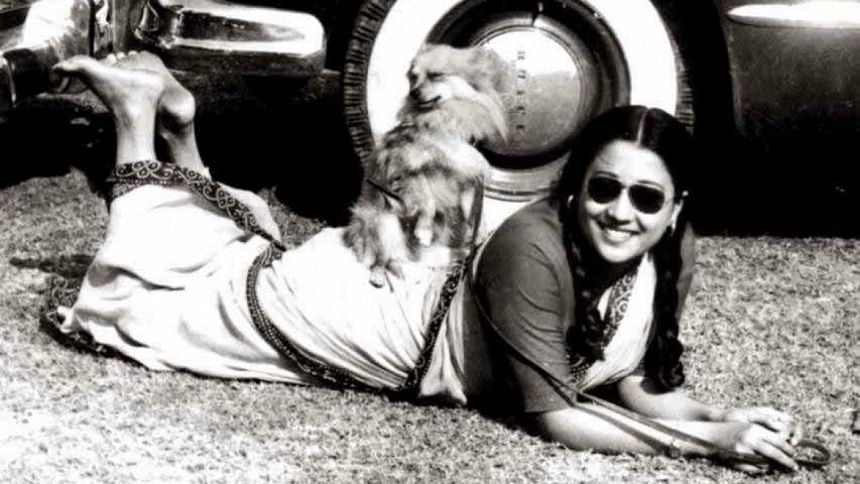
Directors, actors of then Bengali cinema scene of the 1960s, went head over heels to cast her in their films. Suchitra, a dedicated perfectionist, did justice to each of her portrayals with a mix of gravitas and charm, punctuated by a smile that could captivate audiences instantly. An institution by herself, a true master of her craft who could blend in any character with absolute finesse, she, however, is more infamous for her dignified refusals to legendary filmmakers.
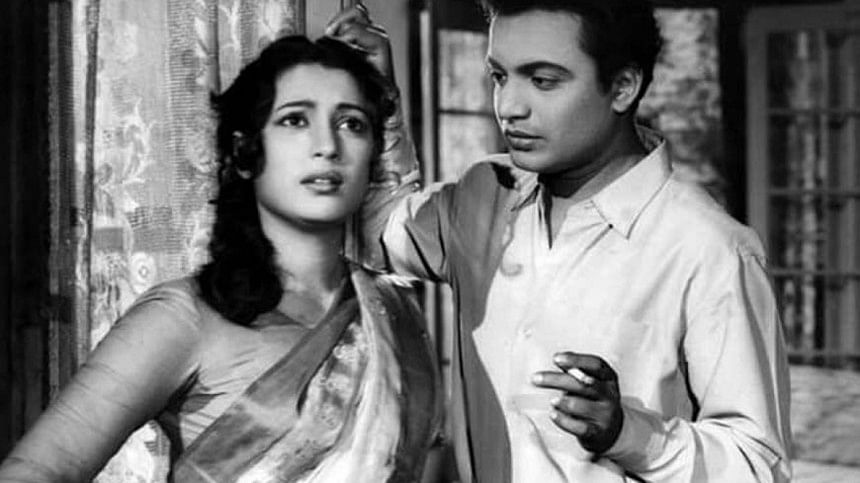
Suchitra was famously selective about her choices in films, directors and co-actors, but all her reasons were so on-point that made her an arguably feminist personality, who women in that era looked up to. Suchitra refused to work with the maestro of Bengali cinema, Satyajit Ray, as he wanted her to act exclusively in his film "Ghare Baire", while she had other commitments. Self-assured and steadfast, she declined to work with the flag bearer of Hindi cinema, Raj Kapoor, because she "didn't like his personality". Flirtatious and charming as he was, Raj Kapoor tried to woo the Mahanayika in a way that the graceful, dignified Bengali lady took as 'offensive'.
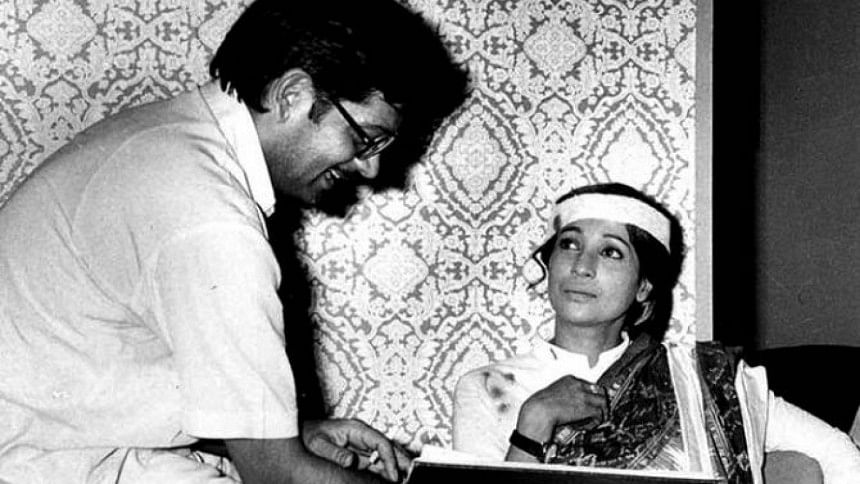
In a memoir that Amitbha Choudhury wrote about her, titled "Amar Bondhu Suchitra Sen", Suchitra said, "In men, I don't look for beauty. I look for intelligence and sharp conversations. I had refused Raj Kapoor's offer almost immediately.
"He came to my residence offering a lead role and, as I took my seat, he suddenly sat near my foot and offered me a bouquet of roses while offering the role. I rejected the offer. I did not like his personality. The way he behaved – sitting near my foot – did not befit a man," Suchitra stated in most stern way possible by refusing the 'Greatest Showman of Indian Cinema' -- Only Suchitra Sen could do it.
Although the great actress seems a bit prudent and opinionated by famous recollections, she was actually a very civil, courteous and warm-hearted person who used to host a variety of people regularly to cook for them and for soulful conversations.

Legendary Urdu, Hindi author, songwriter and poet Gulzar recollected his fond memory of the superstar and said, "Surely she is justified in keeping away from every Tom, Dick and Harry. She is the only example of such quiet dignity in showbiz. That's why the media compares her with Greta Garbo."

"Suchitra Sen is my 'Sir'. I will explain. During the shooting of 'Aandhi', she started calling me Sir. Everyone in Kolkata calls her Madame. Since I am her junior, I requested her not to call me 'Sir', but she insisted. So, I call her Sir and she calls me Sir," the legendary poet said about his dear friend Suchitra in an interview.
Suchitra Sen gloriously completed a trailblazing acting career of 26 years, after which she led a reclusive life for 36 years, before she passed away in 2014.

After her 1978 film "Pronoy Pasha" didn't meet expectations, she retreated from the public eye. To maintain her self-imposed privacy, she even turned down the prestigious Dadasaheb Phalke Award in 2005, as it required a public appearance.
Just as one would expect from an old-school film star, public interest around her mystery-shrouded personal life rose to insurmountable amounts with her decision to recluse herself in solitary confinement within the boundary of her house.
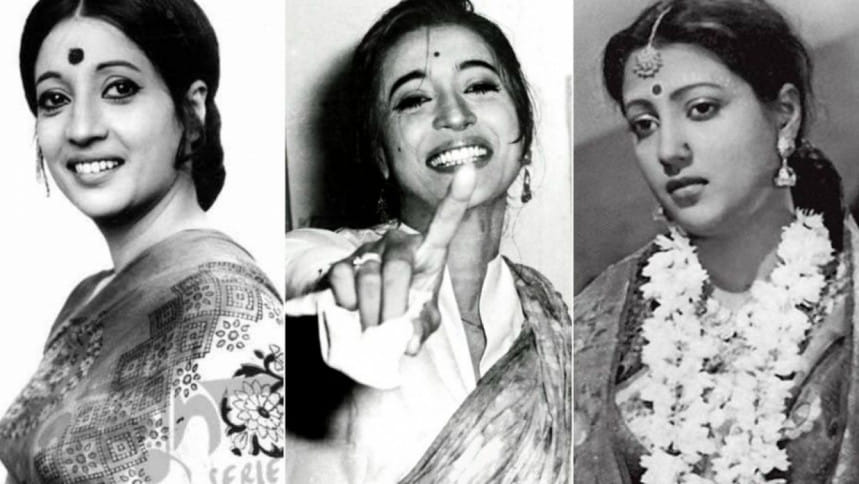
Notably, Suchitra Sen was the first Indian actress to be honoured at an international film festival, securing the best actress award for "Saat Paake Bandha" at the 1963 Moscow Film Festival.
Suchitra Sen was born Rama Dasgupta on April 6, 1931, in Pabna, Bangladesh. Her father Karunamoy Dasgupta was a government servant and mother Bimala Devi was a housewife. She married Dibanath Sen the son of entrepreneur Adinath Sen in 1947.

And with her demise on January 17, 2014 the grand curtain of the Golden era of Bengali cinema fell with generations searching for the threads of mystery she left with her cinematic mark.
Audiences still try to make sense of her enigmatic, mysterious life– a sweet tooth, admirer of Bangladeshi sarees and film enthusiast who used to walk around the busy streets of Kolkata, to the mandirs and sweet vendors in sheer disguise to live a life of her choice, of her own.
On her tenth death anniversary today, we remember Suchitra Sen, Bengal's first female superstar, and a feminist in spirit, who took charge of her own fate and challenged the common norms that surround or define femininity.

 For all latest news, follow The Daily Star's Google News channel.
For all latest news, follow The Daily Star's Google News channel. 





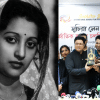



Comments